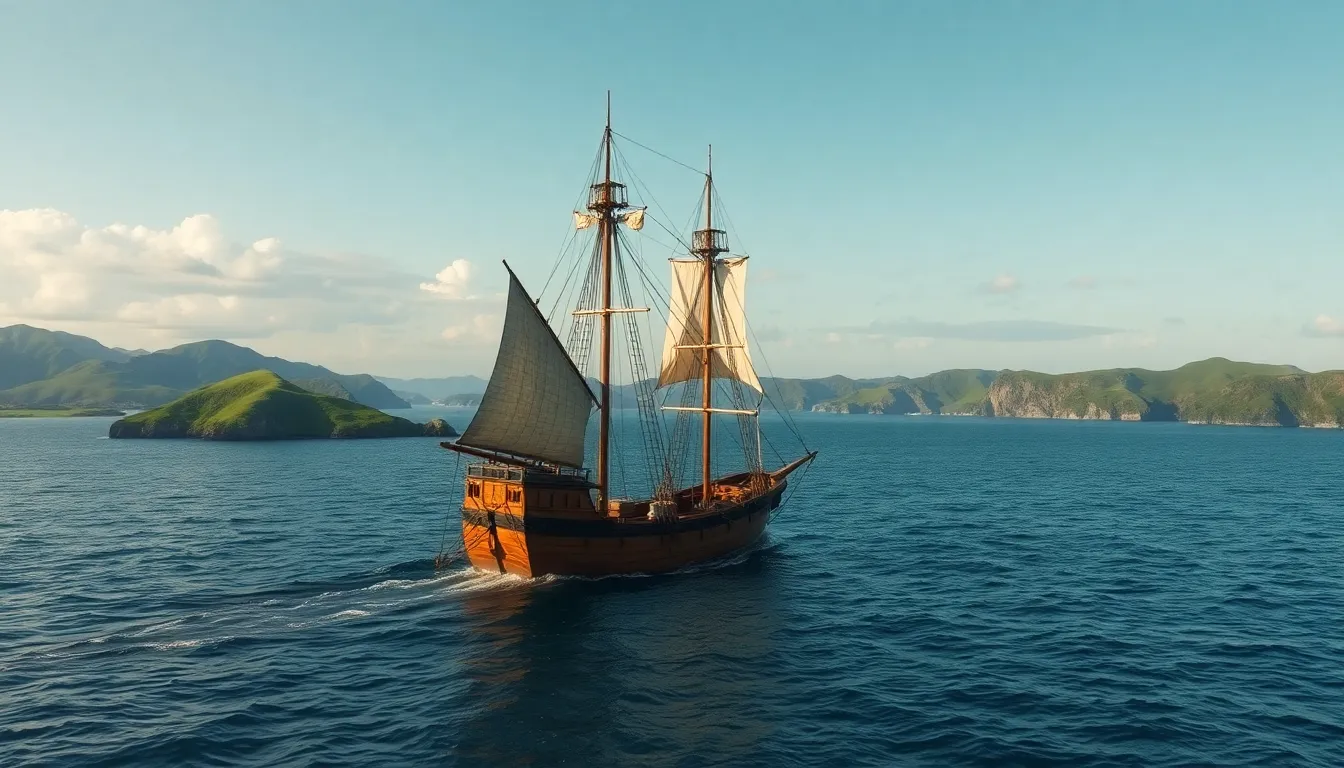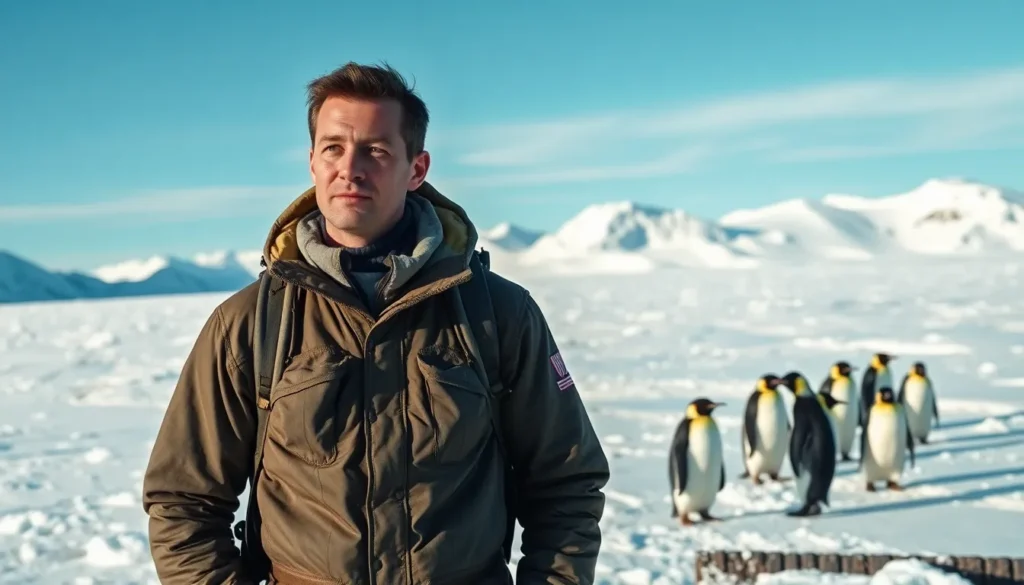Table of Contents
ToggleIn a world bursting with mysteries and uncharted territories, global exploration is the ultimate adventure waiting to be seized. From the icy expanses of Antarctica to the lush jungles of the Amazon, the planet offers a treasure trove of experiences just begging to be discovered. Who wouldn’t want to trade their couch for a kayak or a cozy blanket for a compass?
Overview of Global Exploration
Global exploration encompasses a range of discoveries across diverse environments. Scientists and adventurers investigate uncharted territories, like Antarctica and the Amazon rainforest. Each region presents unique ecosystems, challenges, and opportunities for knowledge.
Antarctica’s extreme conditions reveal insights into climate change and biodiversity. Researchers gather critical data through field studies and technological innovations. Meanwhile, the Amazon rainforest serves as a rich source of biological diversity, housing countless species not yet documented.
Explorers often focus on both physical and cultural dimensions. Engaging with indigenous communities fosters an understanding of local traditions and practices. Collaboration enhances the exploration experience, as knowledge-sharing unfolds rich narratives.
The impact of global exploration extends beyond academia. Tourism thrives in various regions, generating awareness and support for conservation efforts. Visitors contribute to local economies while learning about environmental stewardship.
Additionally, advancement in technology accelerates exploration efforts. Tools such as drones, satellite imaging, and AI enhance research capabilities. These innovations enable teams to access hard-to-reach areas and collect data efficiently.
Education plays a crucial role in fostering interest in exploration. Schools and organizations promote programs that inspire future generations to pursue careers in science, technology, engineering, and math. They encourage the spirit of inquiry and the quest for discovery.
Embracing the unknown fosters personal growth and broadens perspectives. Educational institutions and organizations instill a sense of adventure, empowering individuals to embark on their exploration journeys. Each experience contributes to a collective understanding of our planet and its diverse inhabitants.
Historical Context

Global exploration has a rich history, punctuated by discoveries that reshaped human understanding of the world.
Early Explorations
Ancient civilizations actively sought new lands to expand their knowledge. The Phoenicians ventured across the Mediterranean, mapping coastlines and establishing trade routes. Similarly, the Vikings explored North America centuries before Columbus, reaching Greenland and parts of Canada. Each journey extended knowledge of geography and cultures as explorers navigated unknown waters. Such explorations laid foundations for future expeditions by highlighting the importance of navigation and sea travel.
Notable Explorers and Their Contributions
Famous explorers significantly influenced the course of global exploration. Christopher Columbus opened the Americas to European colonization, altering trade and cultural exchanges. Ferdinand Magellan led the first expedition to circumnavigate the globe, showcasing Earth’s vastness and the importance of global navigation. Vasco da Gama found an ocean route to India, establishing trade links that shaped maritime power. Each exploration not only contributed to geographical knowledge but also connected diverse cultures through commerce and interaction. Their legacies continue to inspire the spirit of discovery.
Modern Global Exploration
Global exploration today combines cutting-edge technology with a passion for discovery. Researchers and adventurers increasingly engage with our planet’s unexplored regions.
Advancements in Technology
Technological advancements revolutionize global exploration. Satellites provide high-resolution images of remote areas, guiding expeditions. Drones facilitate aerial surveys, making it easier to gather data in hard-to-reach locations. Artificial intelligence analyzes vast datasets, revealing patterns that drive further inquiry. Virtual reality enables immersive experiences, allowing people to explore environments without physical travel. These innovations enhance understanding and foster interdisciplinary collaboration among scientists and explorers.
Key Areas of Exploration
Certain areas remain at the forefront of global exploration. The depths of the ocean house unexplored ecosystems, such as hydrothermal vents rich in unique species. Unmapped regions of the Amazon rainforest continue to surprise researchers with biodiversity and indigenous knowledge. Polar regions, particularly Antarctica, provide critical data on climate change and its effects on global ecosystems. Space exploration captures the imagination, with missions aimed at understanding other planets and their potential for supporting life. These key areas highlight the importance of continued exploration in understanding our planet and beyond.
Impact of Global Exploration
Global exploration significantly shapes various aspects of society, influencing economies and fostering cultural exchanges. This impact broadens understanding of both the planet and its inhabitants.
Economic Implications
Global exploration boosts local economies by attracting tourism and investment. Tourists visiting unique ecosystems contribute financially to conservation efforts, supporting wildlife and habitat protection. Additionally, exploration creates job opportunities in research, tourism, and hospitality sectors. Sustainable tourism practices often emerge from exploration, promoting environmental awareness and responsible travel. The economic benefits extend to local communities, enhancing their livelihoods while preserving cultural heritage.
Cultural Exchange
Cultural exchange arises from global exploration, enriching both explorers and local communities. Exploration fosters connections among diverse populations, allowing for the sharing of ideas, traditions, and knowledge. Engaging with indigenous communities offers insights into unique customs, strengthening cultural ties and understanding. This exchange often leads to collaborative projects, highlighting the importance of preserving heritage while embracing innovation. Explorers return with new perspectives, helping to cultivate appreciation for cultural diversity across the globe.
Challenges in Global Exploration
Global exploration faces numerous challenges that can hinder progress and impact the environment and communities involved.
Environmental Concerns
Environmentally, global exploration often leads to habitat disruption and species endangerment. Deforestation in the Amazon, for instance, poses threats to biodiversity and climate stability. Pollution from exploration activities affects air and water quality. Additionally, the fragility of polar regions makes them vulnerable to footprints left by scientists and adventurers alike. Precautionary measures, such as adhering to sustainable practices, become essential to minimize ecological footprints. Research initiatives increasingly prioritize environmental stewardship, striving for a balance between exploration and conservation.
Political and Ethical Issues
Political and ethical issues compound the complexities of global exploration. Conflicts over territorial claims can arise in uncharted regions, complicating collaboration. Engaging with indigenous communities presents ethical considerations surrounding respect and consent. Explorers must navigate cultural sensitivities while ensuring local traditions remain honored. Moreover, equitable sharing of benefits derived from exploration faces scrutiny, prompting calls for fair compensation to indigenous populations. Transparency and respect help build trust, fostering successful collaborations in global exploration efforts.
Global exploration embodies the essence of adventure and discovery. It invites individuals to step beyond their comfort zones and engage with the world’s diverse environments and cultures. Through the lens of exploration, one can witness the intricate balance between human curiosity and the responsibility to protect our planet.
Technological advancements have transformed how explorers gather data and connect with remote communities, fostering a deeper understanding of our world. As explorers navigate uncharted territories, they not only unveil the mysteries of nature but also promote cultural exchange and sustainable practices.
Embracing global exploration ultimately enriches personal experiences and contributes to a collective appreciation for the planet’s beauty and complexity. The journey into the unknown is not just about discovery; it’s about forging connections that transcend boundaries and inspire future generations.








